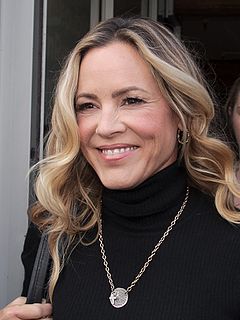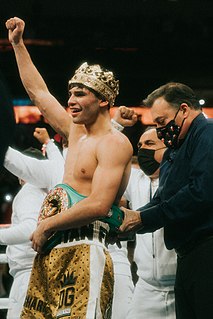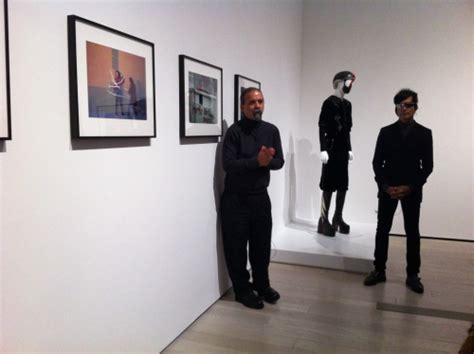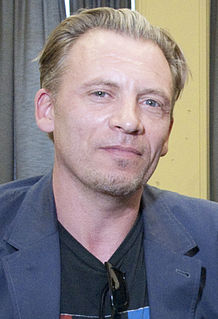A Quote by Maria Bello
There is always one person on the set who has a lot of anxiety, an actor who is really intense and has to stay in character and holds himself away from the rest of us.
Related Quotes
I meet Daniel Day-Lewis. He's just sitting in a chair on the set. Now, I had been told that Daniel Day-Lewis was kind of an intense person. And he's really not. He's really THE MOST INTENSE PERSON THAT HAS EVER EXISTED ON THE PLANET OF EARTH. He's not doing anything, he's just sitting in a chair, and I am terrified of him as if a jungle cat has wandered onto the set, like- WHOA! What do we do! Are we supposed to move around a lot or stay perfectly still?! What are the rules of Daniel Day-Lewis?!
Every actor has their own process. For me, I really need to stay in the pocket. So, if I'm on set and I'm in character, I'm not thinking like a producer. If I'm on set and I'm not in character, wardrobe and make-up, and I'm just coming on set for the moments that I'm not shooting, then I'm able to be the producer.
When I'm writing, I try to have the mask of my character on as I'm walking through the world. When I'm not at my desk, the rest of the time, I try to stay in that character and see the world the way that character would It's almost like method acting in a way — keeping the character close the way the actor keeps a script close and always tries to be in character.
There should always be that leeway because if you think of your character as sort of absolutely fixed, then you just try and find actors to come and do exactly that thing, then you're not gonna be working with that actor's own set of internal impulses and who they are, so the best work is always a coming together of the actor and the character.
The fifties were pretty rebellious, a pretty rebellious period, around that time. And it was preceding the whole zoot suit thing which I think really contributed to a lot of anxiety, to a lot of frustration, a lot of blaming. And it just like boom, it was very destructive for us as a people, that right away put us on like we had to defend ourselves on every level, every moment. We seemed like we always had to be on guard.
To be an actor and a director, I actually felt it helped me tremendously to be in the scenes of The Hollars, because as you can see, they're very intimate, very intense scenes. You don't want to break the actor's character and you don't want to break their momentum, so as the actor, I tried not to call cut as much as I could, and almost make it feel like a play, just set this environment where these amazing actors could do what they wanted to do.
Every director is always directing around the play. If you have an actor who really doesn't get the character well enough, you have to direct the play around that character. You have to make choices with that actor. If you have an actor that really doesn't get the role and has certain visions of the role, sometimes you have to direct around that actor.
Acting is about giving yourself away, like the U2 song 'With or Without You.' You just don't stay behind a character and make people laugh or cry. At some point you have to take off that mask, and when you do, you're a human being, not just an actor. After all, I'm Catherine the person first. You share that.
I'm so excited about 'Shattered;' it's something I've really enjoyed working in, and it's very different from anything I've done before. I've always been a character actor and done a lot of support work. I've never really been the lead actor, so I'll try and use what I've learned along the way from the other projects.


































